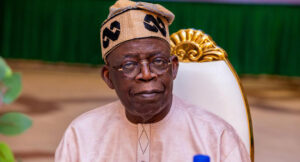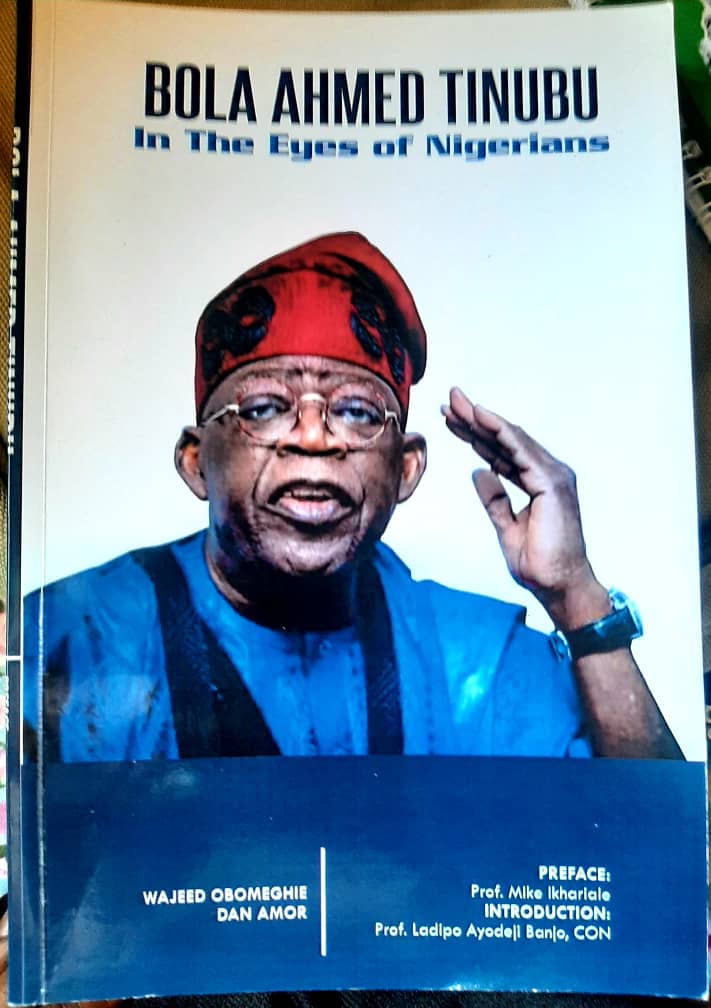BOOK REVIEW
YEAR OF PUBLICATION….2022
PAGINATION… 270
INTRODUCTION
. Prof. Prof. Ayo Banjo CON
Emeritus Professor of English Ayo Banjo CON, the man who wrote the introduction to the book, is not struggling for his place in the sun. As far as the world of English language is concerned, he is The Sun itself. Prof. Banjo, the only one to be the Vice Chancellor of the Premier University of Ibadan for two terms. is certainly the largest and most crucial literary critic in the English language since the divine Walter Pater, the divine Oscar Wilde and the the divine Northrop Frye. Prof. Banjo summarized a book of about 270 pages, one of the best written biographies in human history, second only to the biography of Dr. Samuel Johnson, the dictator of the English Literary Club of his time, written by his bosom friend, James Boswell, into one piece.
The foreword to the book was signed by no less a personality than Mike Abumere Ikhariale, a first rate Professor of Constitutional Law and was one of the best Nigeria has ever produced, who became a professor of distinction at 32. The book which is a compendium of the views of notable Nigerians from all walks of life, on Asiwaju Bola Ahmed Tinubu, was co-authored by Wajeed Obomoghie and Dan Amor, two distinguished Nigerian journalists and world-class writers of note.

Whereas Wajeed Obomoghie is a national bibliotherapist who has written many books on the origin and tribal wars of his people, Dan Amor, is a culture journalist who has published many professional books to his credit. Asiwaju Bola Ahmed Tinubu, the subject of this already controversial biography, is a notable Nigerian politician who can squeeze water out of stone.
Admire or fear him. But you can’t ignore Bola Ahmed Tinubu, except you do that at your peril. No matter where you are, he influences your life through the political leaders that he has made; through the newspaper, television and radio houses that he has built over the years. He is, perhaps, Africa’s most successful politician and business baron. The story of his political exploits, as put together by these journalists and culture experts, is the story of the century.
Tinubu used his overwhelming influence to buy into the media industry in Nigeria because he knew long ago that there is an endless possibility in this age of communications. In this book of about 270 pages, about 400 Nigerians of all walks of life talk about the possibility of Tinubu and a new Nigeria.
The co-authors or co-editors, Dan Amor and Wajeed Obomoghie, as students of historical literature, convinced that history is in art, not in science, have underlined the importance of Marx’s artful use of language, Carlyle’s gift for capturing the flow of history in time, Gibbon’s humour and his creation of a benevolent conspiracy between the reader and himself, Macaulay’s ability to propel inert facts into motion, and the literary artistry of other great historians.
In the book, the co-authors show us how they create suspense among the over 400 commentators on Tinubu and how they feel like actual participants in all the actions Tinubu has taken all through his busy and active life. The authors did not only create suspense but balanced background and foreground. The book of about 60 chapters, opens with President Muhammadu Buhari who calls Tinubu a political strategist without whom, there would not have been APC and the ruling party would not have been in power.
The book ends with the remarkable remark by Senator Oluremi Tinubu, who said that it was the husband’s “kind eyes that attracted me.” For the president’s wife, Dr. Aisha Buhahi, Tinubu is “a politician above personal interest.” For el-Rufai, the Executive Governor of Kaduna State, Tinubu remains the best for Nigeria Whereas the Vice President, Prof. Yemi Osinbajo describes Tinubu’s years in politics as Tinubu’s “remarkable decades, for President Olusegun Obasanjo calls Tinubu “a thorough- bred politician of masters class.” Former President Goodluck Ebele Jonathan described Tinubu as “an exceptionally fulfilled man.”
While declaring that Bola Tinubu will not disappoint Nigeria, the Ooni of Ife enthused that “Asiwaju’s relevance is not in doubt.” The co-authors examine as well, the pudding molds employed by Victian historians to interpret the past and classics of historical writing, such as G.M Young’s Portrait Of An Age and hod how G.M. Trevelyan continued the tradition of The historian as literary artist and examines Herbert Butterfield’s concern with the use and abuse of the past. He describes the threat to the art of narrative history brought on by the complexities of social history and he parodies the misplaced use of computer techniques in current writings. These comments, both incisive and amusing, convince the reader that the works of the great historians not only supply part of part of a true education but are also the source of great of great continuous pleasure.
The co-authors, great students of history and historical literature, have written one of the best books in modern scholarship. No partial reading of the book is enough. Asiwaju Bola Ahmed Tinubu In The Eyes Of Nigerians: Portrait Of An Uncommon Nigerian, is therefore an idea whose time has come. It is supposed to be in all libraries and private book shelves in Nigeria.


